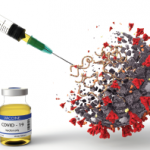Although the trial was underpowered because recruitment was halted prematurely, with the COVID-19 pandemic offered as a partial explanation, it nevertheless offers hope that non-traditional RA therapies may confer benefit to slow or even halt the devastating manifestations of ILD that affect many RA patients.
Abstract 0982: B cells repertoire repartition predicts response to methotrexate at 6 and 12 months in naïve RA: A machine learning driven approach11 Research by Najm A, et al.
Enthusiasm abounds to use automated, data-driven approaches to predict treatment response coupled with advances in precision medicine. However, in RA, many datasets are too small for machine learning or artificial intelligence to be effectively used, or are conducted with minimal attention to replication and validation—an essential feature of any machine learning-based approach.
Peripheral blood leucocytes from early RA patients in the SERA cohort had their B cell repertoire measured as a predictive marker to response to MTX. Baseline levels of circulating IgD+ B cells clones were more frequent in responders compared with non-responders (P=0.004), whereas IgA1+ and IgA2+ clones tended to be more frequently represented in non-responders (P=0.069 and P=0.001 respectively). A gradient boosting statistical model showed the response to MTX could be predicted with a sensitivity of 78%, specificity of 79% and an area under the curve of 0.88, consistent with good discrimination.
Although further replication is warranted, this study is one of the first immunology-based prediction model for MTX and suggests that advanced machine learning methods may be useful to support precision medicine in RA. Those predicted to be non-responders to MTX may be targeted to start combination therapy, rather than MTX monotherapy, when RA therapies are first prescribed.
Jeffrey Curtis, MD, MS, MPH, is a professor of medicine and holds the Marguerite Jones Harbert—Gene Ball Endowed Professorship in Rheumatology and Immunology, in the Division of Clinical Immunology & Rheumatology at the University of Alabama at Birmingham (UAB). He is board certified in both rheumatology and clinical informatics. He is the co-director of the UAB Pharmacoepidemiology and Pharmacoeconomics Research (PEER) Unit.
In 2012, he was awarded the Henry Kunkel Young Investigator Award by the ACR) and was accepted into the American Society for Clinical Investigation (ASCI) in 2016. The evaluation of the efficacy, comparative effectiveness, and safety of the medications used to treat RA and spondyloarthritis are among Dr. Curtis’s research interests.
He served on the Core Expert Panel for the ACR’s 2008, 2012 and 2015 Recommendations for the Use of Nonbiologic and Biologic Disease Modifying Antirheumatic Drugs in RA. He was the deputy director for a collaborative project between the U.S. Food & Drug Administration (FDA), the Agency for Healthcare Research and Quality (AHRQ) and a number of academic centers studying the safety of biologic agents using multiple, pooled national data sources.



